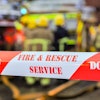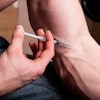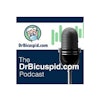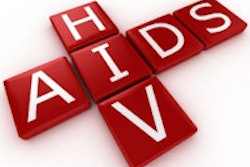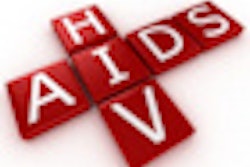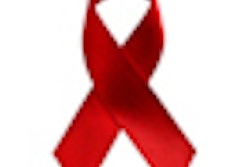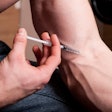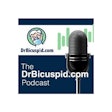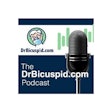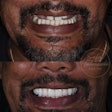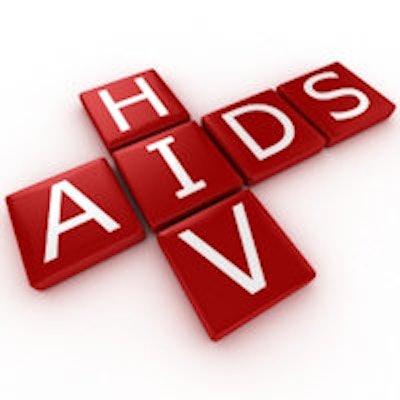
If your patient is willing to get a test for HIV at the dental office, are you willing to give it? A study presented this week at the HIV Testing Symposium in Australia found that more than 80% of patients would be willing to receive rapid HIV testing in dental settings.
In an earlier study published in May in the American Journal of Public Health, 60% of surveyed U.S. general dentists indicated at least some willingness to offer expanded HIV screening to their patients, and 40% of dentists responded that HIV testing should be part of the dental professional's role (AJPH, May 2014, Vol. 104:5, pp. 872-880). However, less than 1% of the more than 1,800 dentists who responded to the survey reported that they were currently offering HIV rapid testing.
The new study by researchers in Australia assessed more than 500 Sydney-based dental patients' willingness to undergo rapid HIV testing in dental settings, their preference for HIV testing type, and if they would pay for the test.
Rapid HIV testing is a screening test that swiftly detects the presence of HIV antibodies in a person's body by testing blood or oral fluids. It can be done as a simple finger prick or a saliva swab, and results can be available within 20 minutes. The technology to conduct these tests has been widely available for a decade, according to the Australian researchers.
Interestingly, in the AJPH study, more than two-thirds of the 1,800 dentists who responded "expressed concern regarding patients' acceptance of such population screening." The authors of the U.S. study wrote that dental providers have "previously identified low patient acceptance as a potential barrier to incorporating HIV screening in the dental setting."
The results of previous studies suggest that dentists may overestimate patients' reluctance in this area, they noted. The subsequent Australian study findings suggest patients are not reluctant to receive this screening at a dental office.
“If rapid HIV testing was widely available in dental settings, it could help to reduce the spread of the virus by informing people who aren't aware that they are HIV-positive.”
Dentists have many advantages when it comes to offering rapid HIV testing, stated Anthony Santella, MPH, DrPH, of the University of Sydney and lead author of the Australian study, in a press release. Santella is a lecturer in the university's Master of HIV, STIs and Sexual Health program.
"Dentists are well-placed to offer rapid HIV testing because they're located throughout the community, have ongoing relationships with their patients, and have the necessary training and expertise to recognize systemic diseases that have oral manifestations, such as HIV/AIDS," Santella said.
These new research findings have important policy implications, he noted. "If rapid HIV testing was widely available in dental settings, it could help to reduce the spread of the virus by informing people who aren't aware that they are HIV-positive," Santella said.
In the U.S. study, the researchers found that younger dentists were slightly less likely to support the provision of rapid oral testing as part of the dental role. The topic of HIV testing may not yet be fully integrated into dental school curricula, and older dentists may have had greater exposure to individuals with HIV-related morbidities, according to the study authors. Having seen this group of patients, these practitioners may be more willing to regard HIV population screening as part of the dental role.
The AJPH study authors noted that few dentists appeared to be familiar with the 2006 revised HIV screening guidelines from the Centers for Disease Control and Prevention (CDC). The dentists who were familiar with the CDC guidelines were more likely to respond that HIV screening is part of the dental professional's role, but familiarity with the guidelines didn't correspond exactly with a willingness to offer screening.
What groups of dentists were more willing to offer screening?
Dentists who responded to the survey by agreeing that it is "very important" that all persons 13 years and older be tested for HIV at least once were one group willing to offer screening. Perhaps not surprisingly, the researchers also found that dentists who had already recommended that a patient get tested for HIV in the past were more likely to offer screening services as well.
African-American dentists were more than twice as receptive as non-Hispanic white dentists in the study to accept that HIV screening was part of the dentist's role. Dentists practicing in rural areas and areas without Ryan White medical providers, safety-net providers who offer primary care and referral services to people living with HIV/AIDs regardless of insurance status or ability to pay, appeared less willing to perform the testing, which the authors wrote is "consistent with lower overall HIV prevalence in such communities." Age also appeared to be a factor, as older dentists appeared "marginally more receptive to regarding rapid oral testing as part of the dentist's role" than younger dentists.
